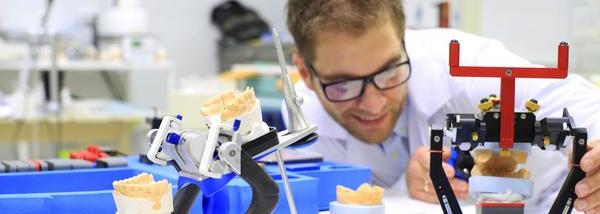Natural home remedies are growing in popularity as a way to treat and prevent skin cancer. Skin cancer, also called melanoma of the skin, is the most common type of cancer. In the U.S. alone, more than 80,000 cases of skin cancer were reported in 2016, of which 10 percent resulted in death.¹ The best way to stop skin cancer is to prevent it from happening by limiting exposure to UV light from the sun or tanning beds.
We’ve compiled a list of the BEST and SAFEST natural treatments for skin cancer to help you ease your symptoms and prevent the melanoma from developing.

What Causes Skin Cancer?
The Mayo Clinic defines skin cancer as “the abnormal growth of skin cells” which “most often develops on skin exposed to the sun. But this common form of cancer can also occur on areas of your skin not ordinarily exposed to sunlight. There are three major types of skin cancer — basal cell carcinoma, squamous cell carcinoma and melanoma. You can reduce your risk of skin cancer by limiting or avoiding exposure to ultraviolet (UV) radiation. Checking your skin for suspicious changes can help detect skin cancer at its earliest stages. Early detection of skin cancer gives you the greatest chance for successful skin cancer treatment.”²
Prevention is the Most Effective Treatment
The best way to TREAT skin cancer is to PREVENT yourself from getting it in the first place. Since the largest number of skin cancer cases are proven to be caused by UV light exposure, taking steps to limit your body’s intake of UV light is one surprisingly easy way to prevent skin cancer from developing. Other studies have found that changing your diet can provide your body with the nutrient-rich weapons it requires to fight off skin cancer and keep it from attacking your body. Here are some of our best prevention tips:
-
Wear and Reapply Sunscreen SPF 15 or higher
Before you leave the house, make sure to spread some sunscreen on any parts of your skin that might be exposed to the sun. Make it an essential routine, and you won’t ever forget to put it on. The minimum SPF you should look for is 15, but higher SPF is even more recommended. If you are worried about the possibility that the sunscreen might cause you to breakout, look for noncomedogenic products that won’t block your pores.
-
Avoid the Sun and Other Sources of UV light³
According to the CDC, the hours between 10am and 4pm, especially in the late spring and early summer, are the most likely times for UV exposure outdoors. This is the case even on cloudy days. So, if you are planning to spend more than 20 minutes outside during these times, it is important to avoid direct exposure to the sun. Some easy ways to protect yourself are by wearing a hat or clothing that covers your arms and legs. Alternatively, you could stay in the shade.
Tanning beds and booths and sunlamps are another hazard. But artificial tans are so last decade, anyways. In the year 2020, there is no longer any need to visit a tanning booth. The BEST option is to save money and avoid tanning business altogether, and that includes sunlamps, too.
-
Add Foods High in Antioxidants to Your Diet
According to a 2002 study, UV exposure reduces the number of antioxidants in the body, which makes skin easier to damage.⁴ As a result, eating foods high in Vitamins C,E, and A, zinc, selenium, beta carotene, omega-3 fatty acids, lycopene, and polyphenols can help replenish your body’s antioxidants and help it fight off damage caused by UV light. Some of the best foods to add to your diet include carrots, squash, sweet potatoes, leafy greens, broccoli, legumes, apricots, oranges, fatty fish, and green tea.
If you Can’t Prevent It, Try These Natural Home Remedies
-
Relaxation therapies⁵
When it comes to cancer, treating the mind is just as important as treating the body. Being diagnosed with any form of cancer is a harrowing experience, and can cause stress, anxiety, and depression. Relaxation therapies such as massage, meditation, yoga, reiki, acupuncture and other practices can help those with cancer cope with their disease. Moreover, it is thought that a calmed mind may encourage the body to heal.
-
Turmeric⁶
Turmeric is a common spice that can be used to treat inflammation. Eating it in the form of a capsule, tablet, tea, or extract, or applying it to skin directly as a paste may help ease general inflammation, the pain from sores on your skin, or reduce the skin irritation that often occurs after radiation treatments for cancer. Turmeric is generally considered safe, but should not be taken in high doses, as a large amount in the body could lead to stomach problems.
-
Garlic⁷
Garlic is recognized by The National Cancer Institute as one of several vegetables or herbs that may potentially have anti-cancer properties. In the past, certain studies have shown that those who eat garlic regularly may be less likely to develop stomach and colon cancer. Most people use it to flavor food, but it may also be taken as a dietary supplement tablet or capsules. You may even find that there is some benefit to applying garlic oil to the skin. You should not take any garlic supplements if you take blood thinning medication or saquinavir, a drug used to treat HIV infection. Otherwise, garlic is considered to be a safe and natural treatment for various conditions, which may possibly include cancer.
These are just a few natural treatments you can turn to but…
…If you decide to use any complementary or alternative cancer treatment, be sure to do so with the consent of your doctor. No natural home remedies should ever be used as the primary treatment. Follow the advice of government sponsored websites, such as the National Center for Complementary and Integrative Health, which states that, “Delaying conventional cancer treatment can decrease the chances of remission or cure. Don’t use unproven products or practices to postpone or replace conventional medical treatment for cancer.”⁸ You should also be suspicious of any alternative treatments that are not directly recommended by your doctor. Make sure you do sufficient research and seek professional medical advice before trying any natural home remedies.
[1] Centers for Disease Control and Prevention. “Leading Cancer Cases and Deaths, Male and Female, 2016. United States Cancer Statistics: Data Visualizations. https://gis.cdc.gov/Cancer/USCS/DataViz.html
[2] “Skin Cancer.” The Mayo Clinic. https://www.mayoclinic.org/diseases-conditions/skin-cancer/symptoms-causes/syc-20377605
[3] Centers for Disease Control and Prevention. “What Can I Do to Reduce My Risk of Skin Cancer?” Skin Cancer. https://www.cdc.gov/cancer/skin/basic_info/prevention.htm
[4] Skin Cancer Foundation. “Can Your Diet help Prevent Skin Cancer?” Sun & Skin News, 8 June 2017. https://www.skincancer.org/blog/can-your-diet-help-prevent-skin-cancer/
[5] U.S. Department of Health and Human Services. “Thinking About Complementary & Alternative Medicine: A Guide for People with Cancer.” https://www.cancer.gov/publications/patient-education/367ncinewv2.pdf
[6] National Center For Complementary and Integrative Health. “Turmeric.” Health Information. https://www.nccih.nih.gov/health/turmeric
[7] National Center For Complementary and Integrative Health. “Garlic.” Health Information. https://www.nccih.nih.gov/health/garlic
[8] National Center for Complementary and Integrative Health. “Cancer: In Depth.” Health Information. https://www.nccih.nih.gov/health/cancer-in-depth


